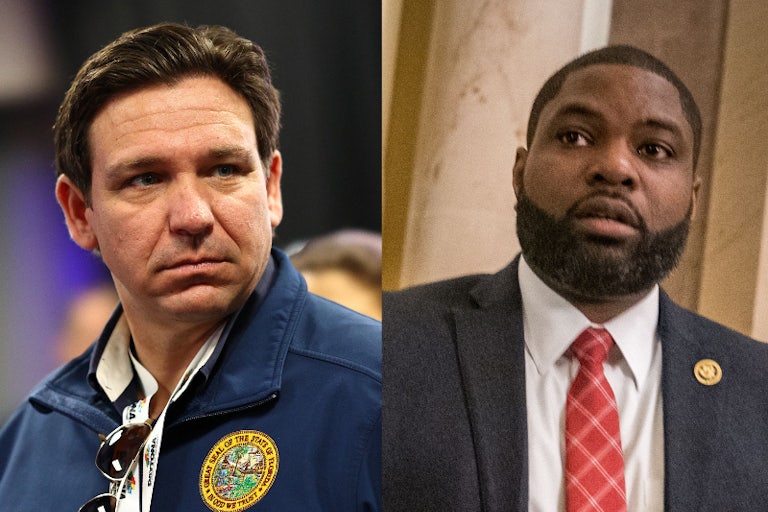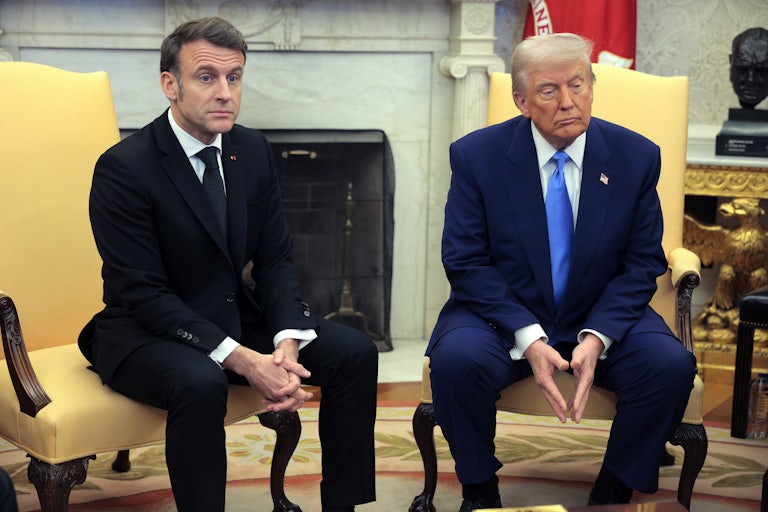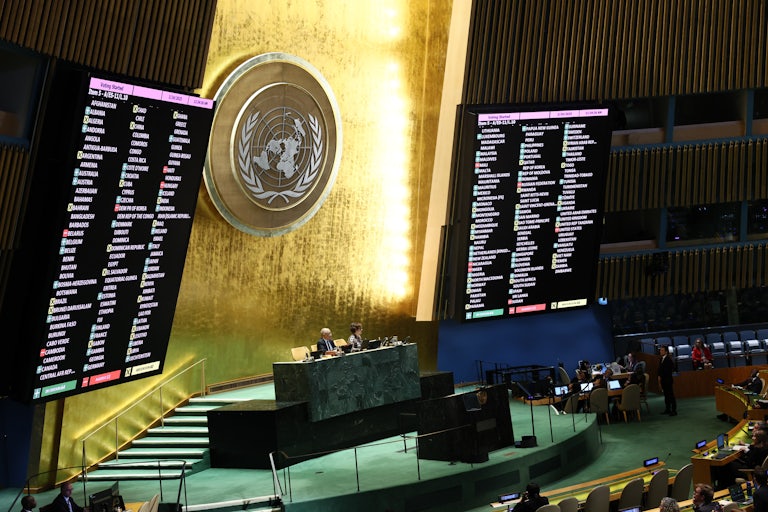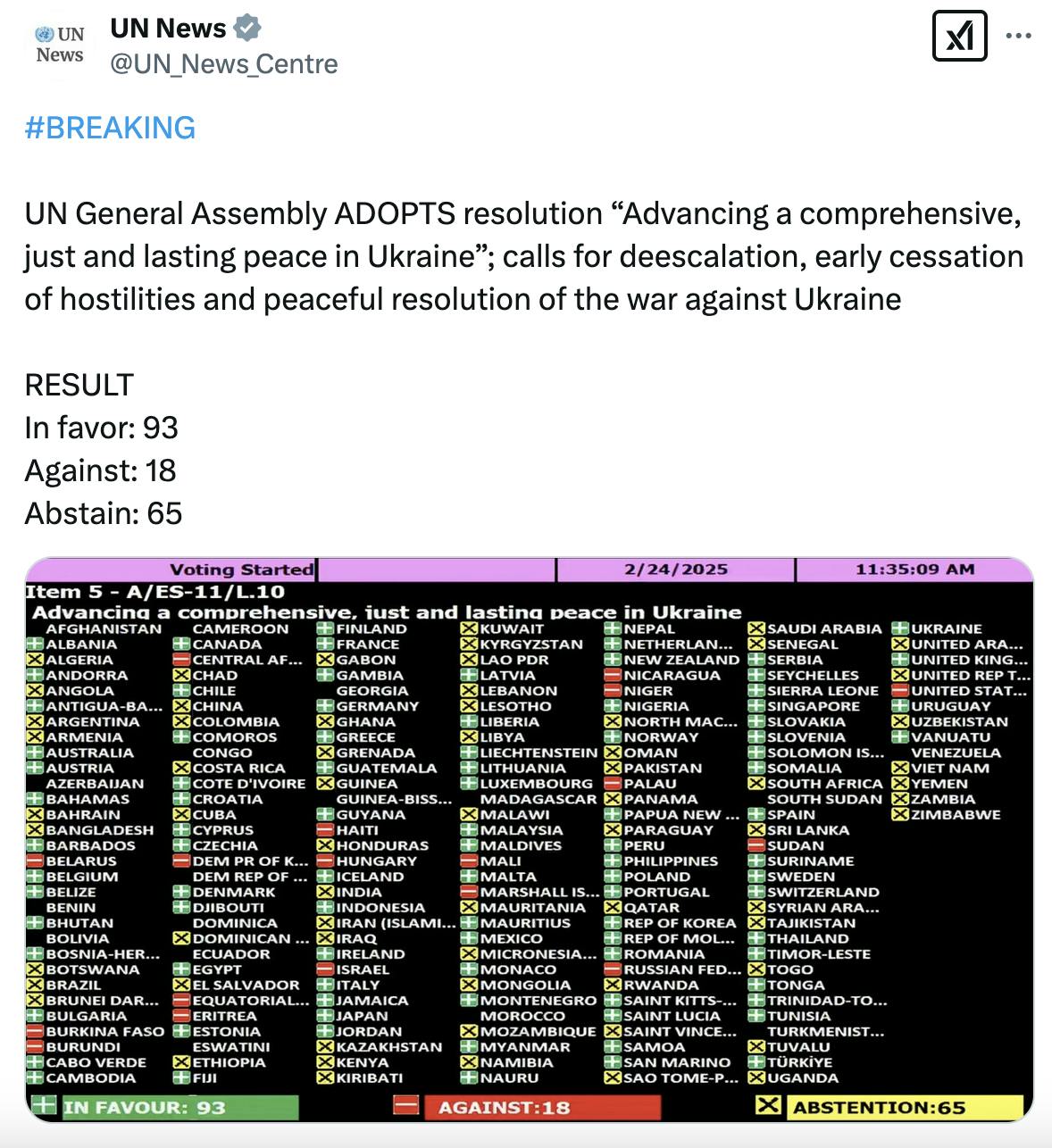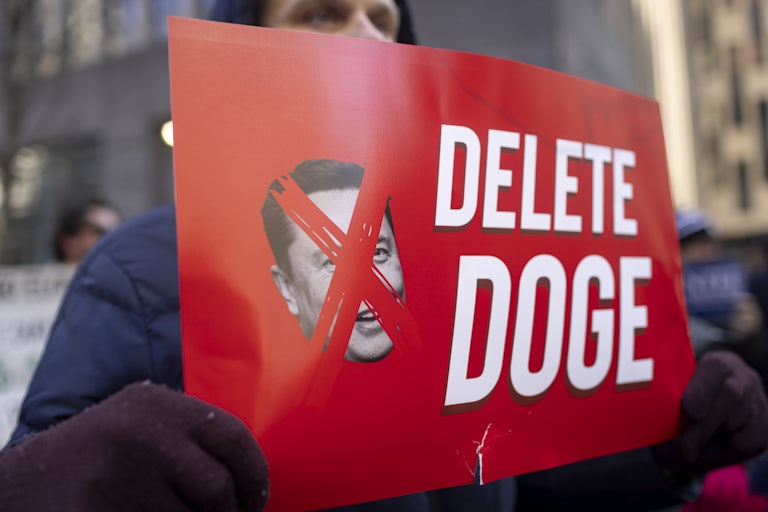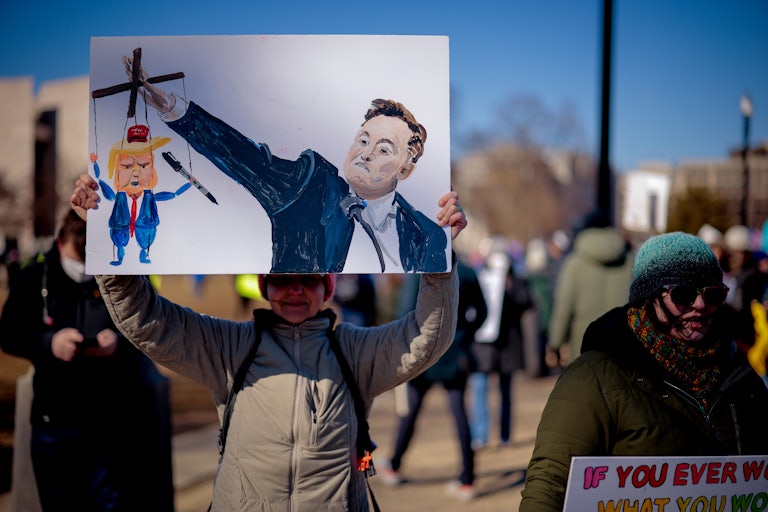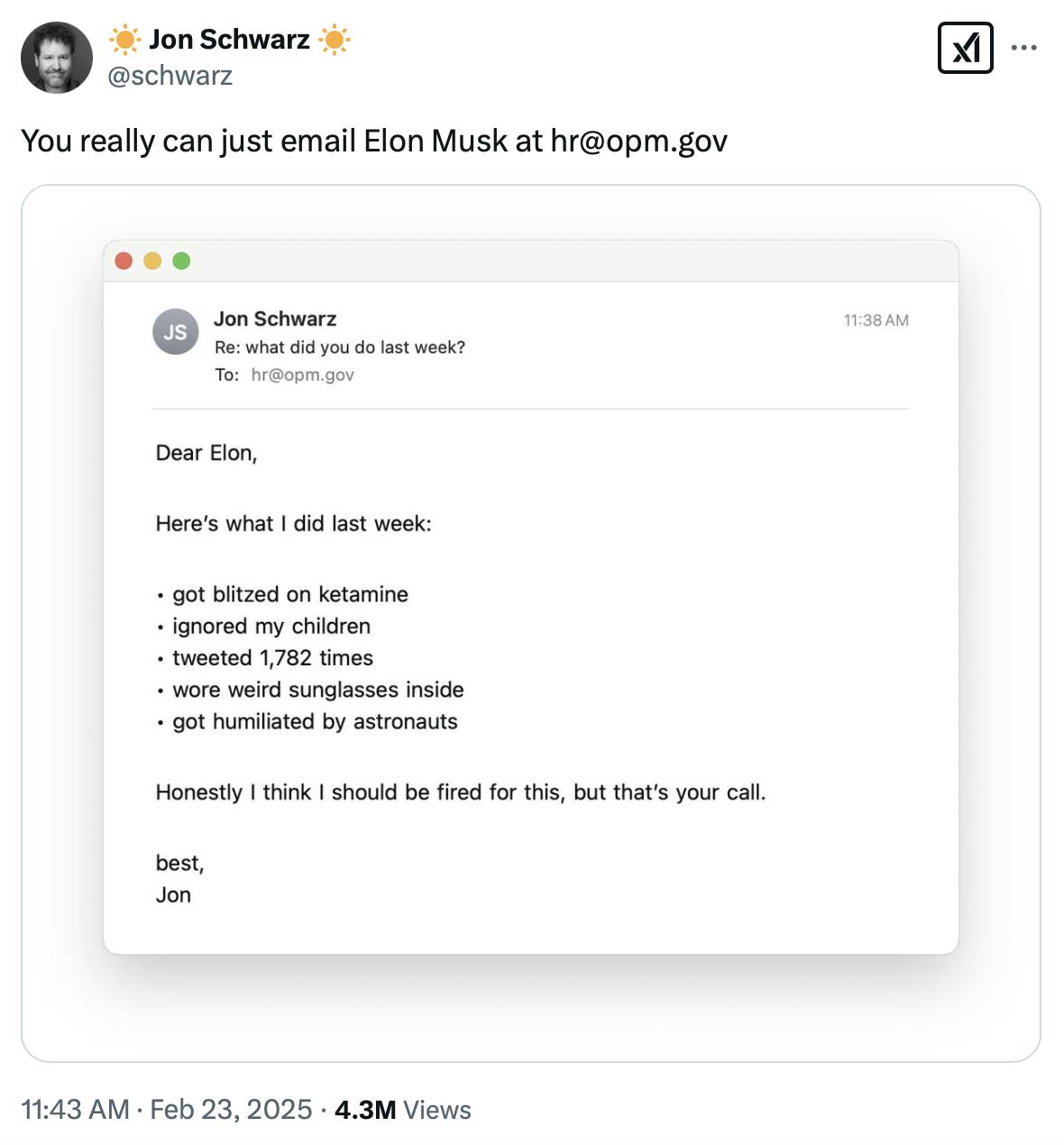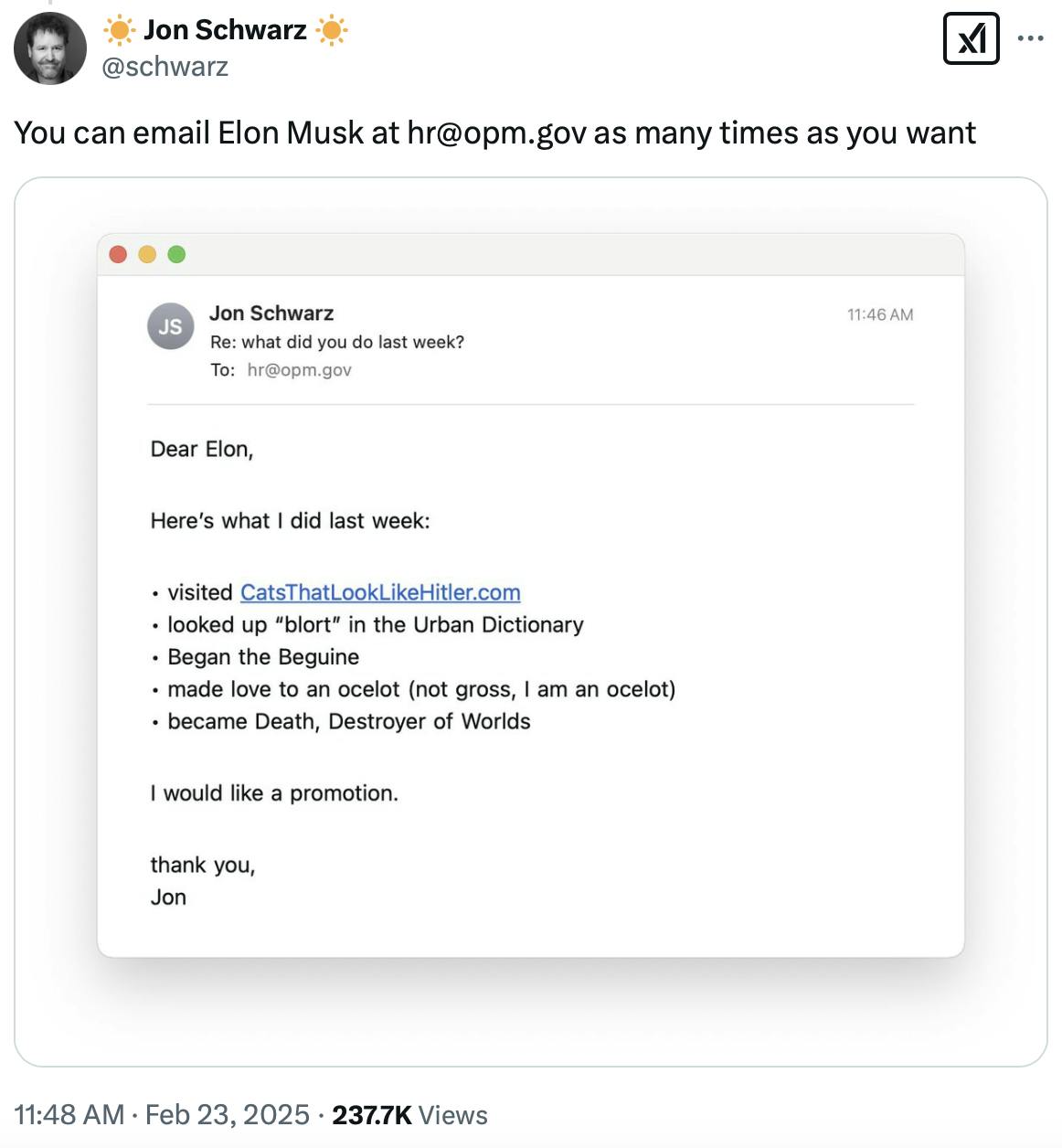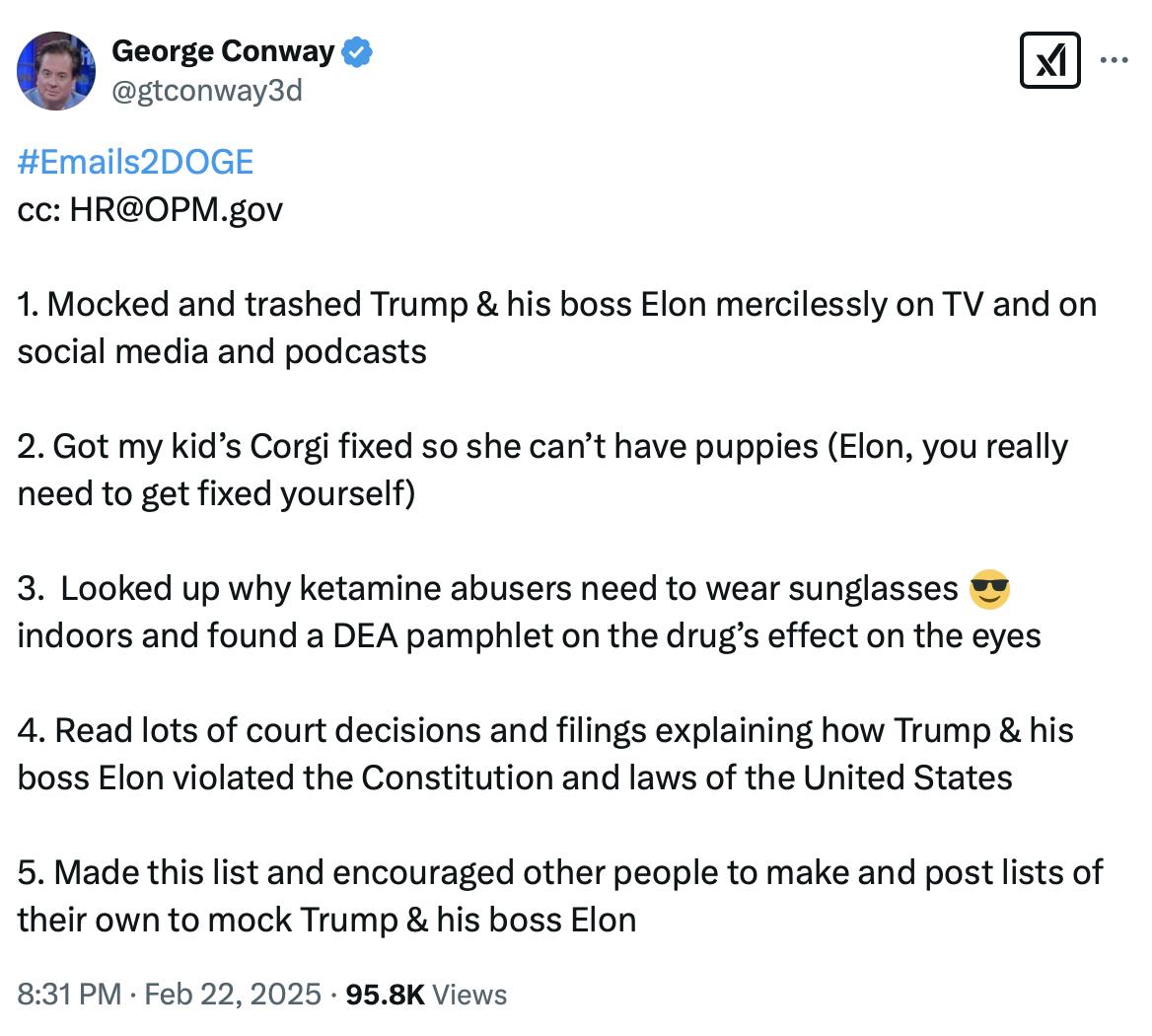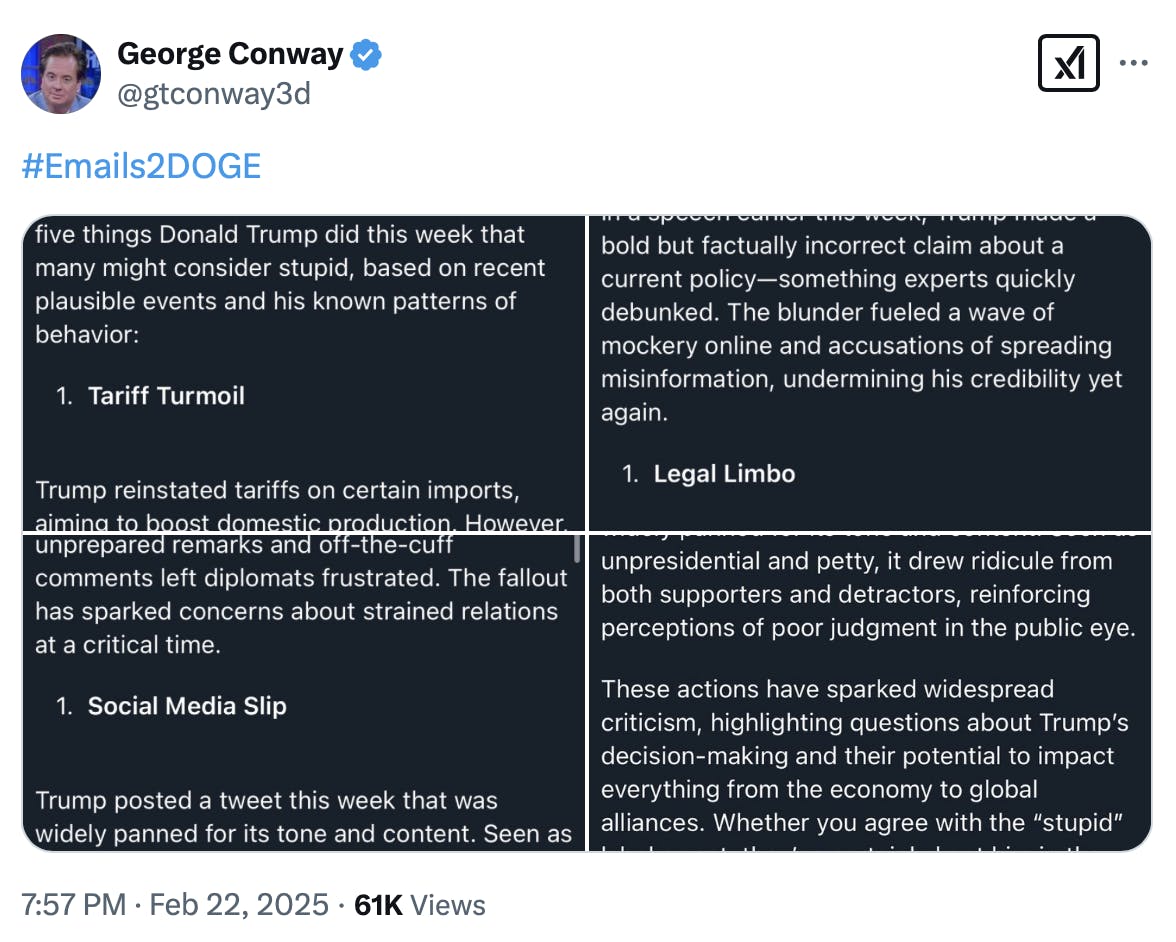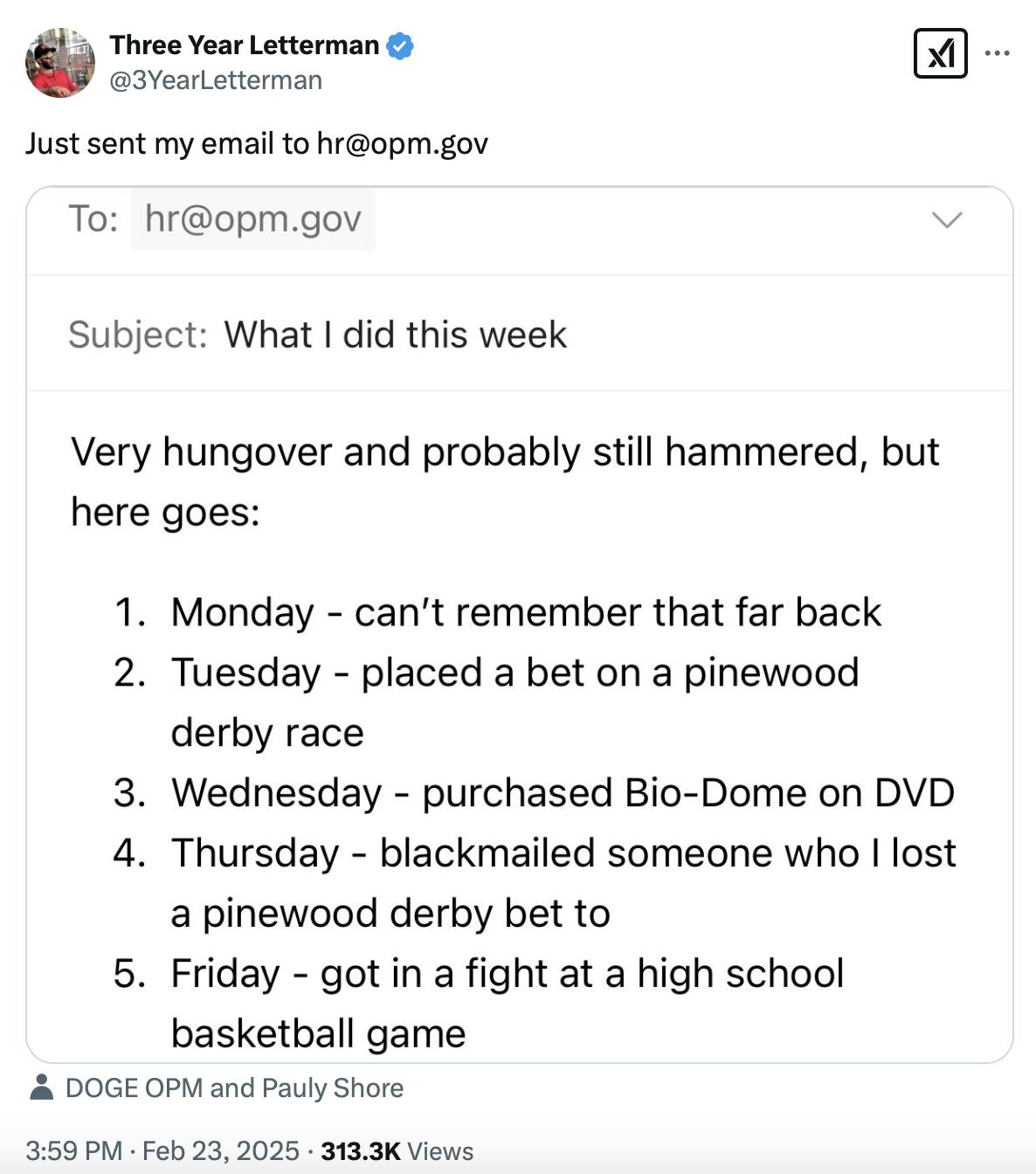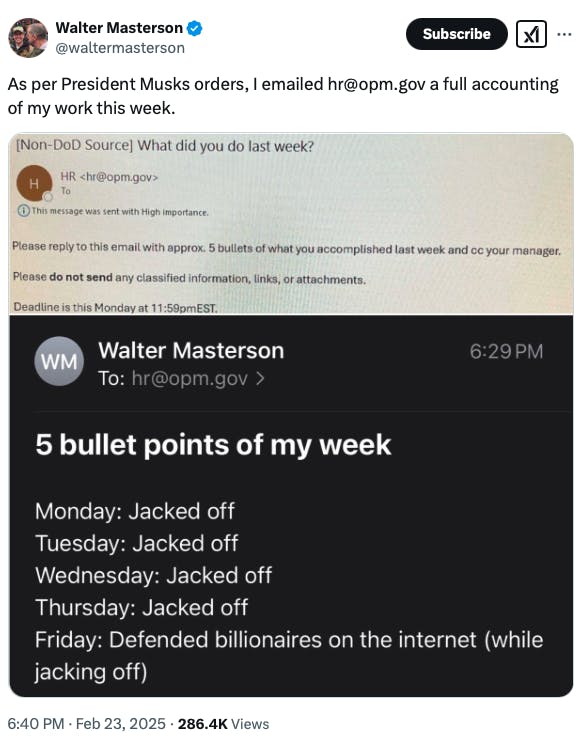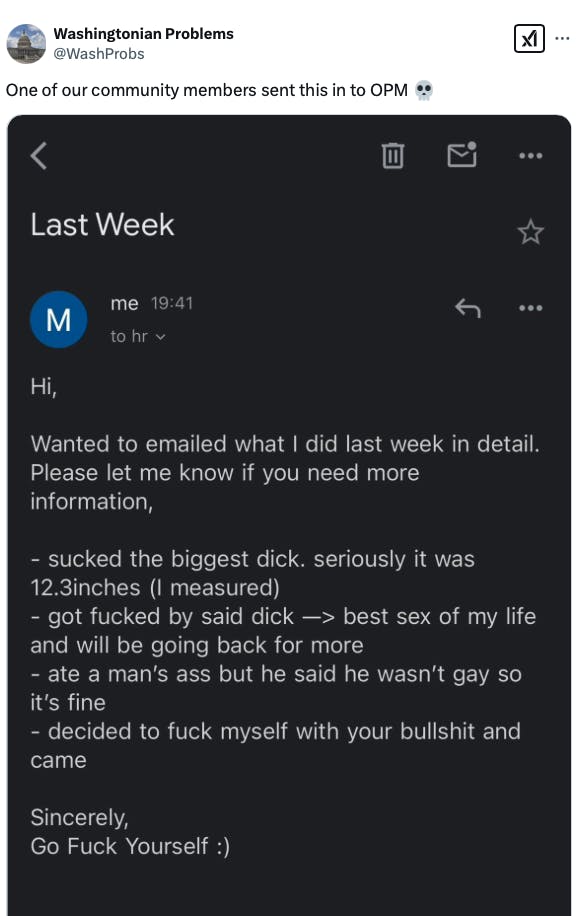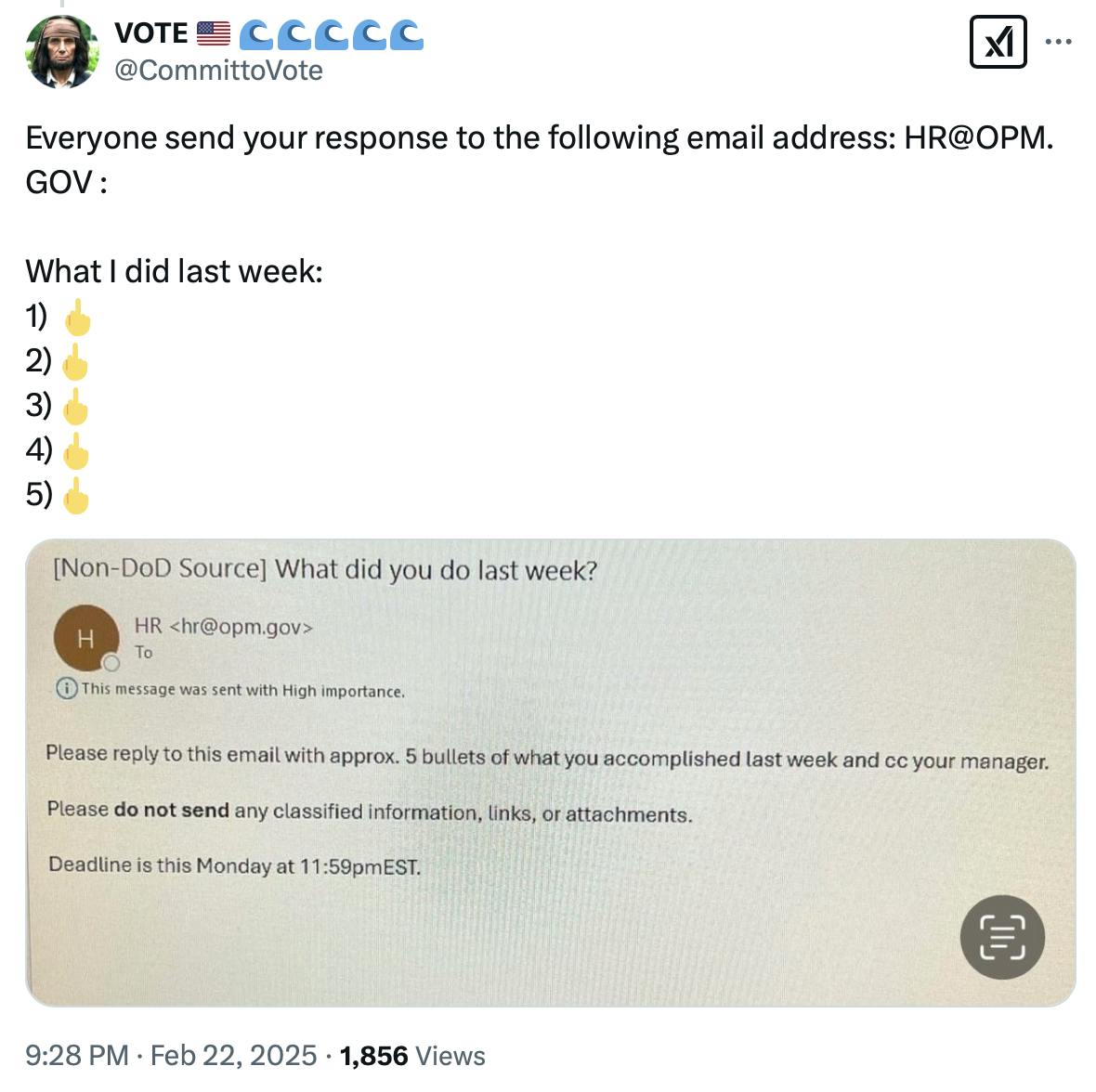Trump Makes Wild Announcement About Future Relationship With Russia
Donald Trump has made it clear where his loyalty lies.
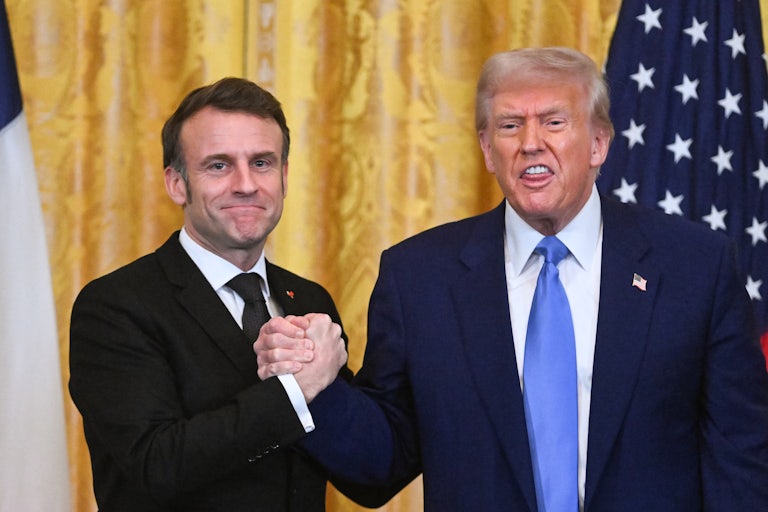
President Donald Trump capped a meeting with French President Emmanuel Macron Monday by writing a lengthy post on his social media platform—though details regarding a potential Ukraine-Russia peace deal didn’t just appear to favor Russia but also hinted at larger economic goals with America’s longtime adversary.
“Today, President Emmanuel Macron of France joined me in the Oval Office to speak to the G7 Summit,” Trump posted on Truth Social. “The meeting was convened by Governor Justin Trudeau of Canada, the current chair of G7, to acknowledge the Third Anniversary of the Russia-Ukraine War—Which would have never started if I was President.”
Trump then went on to write that everyone in attendance at the meeting wanted to see an end to the war in Ukraine. Trump also noted that he “emphasized the importance” of the proposed “Critical Minerals and Rare-Earths Deal” between the United States and Ukraine, which would funnel half of the Eastern European nation’s rare earth minerals—hundreds of billions of dollars’ worth of materials used in tech and electronic products—into the American market.
Trump has pitched the deal as a way for the U.S. to recoup financial and military assistance it provided to Ukraine, while Ukrainian officials see the trade arrangement as a way to solidify a long-term relationship with an increasingly Russian-friendly U.S. president.
Trump has previously and incorrectly claimed that the U.S. provided some $350 billion to Ukraine. In actuality, the U.S. has allocated $119 billion in Ukraine aid, according to the Kiel Institute, which has been tracking international financial assistance for Ukraine.
Still, Trump made it perfectly clear who the priority would be in the ongoing peace talks.
“At the same time, I am in serious discussions with President Vladimir Putin of Russia concerning the ending of the War, and also major Economic Development transactions which will take place between the United States and Russia,” Trump said. “Talks are proceeding very well!”
Real estate developer turned U.S. special envoy to the Middle East Steve Witkoff spoke with Russian officials last week regarding a potential peace deal. While speaking about the meeting with CNN’s State of the Union on Sunday, Trump’s longtime friend couldn’t detail one thing that Russia would actually have to compromise on in the arrangement.
Russian forces crossed the Ukrainian border on February 24, 2022, which Putin tried to justify by falsely claiming that he needed to protect civilians in eastern Ukraine.
The U.S. and Russia opened discussions at a meeting in Saudi Arabia last week, seeking a conclusion to the three-year war, but the assembly conspicuously excluded Ukrainian leadership.
While speaking at a NATO summit earlier this month, Defense Secretary Pete Hegseth explicitly outlined that the Trump administration’s peace talks with Russia had taken several bargaining chips “off the table.”
Those included Ukraine’s possible NATO membership (something the military alliance had promised in 2008), the possibility of a U.S. military presence in Ukraine to enforce postwar security guarantees, and the end of NATO missions to Ukraine. Hegseth also added that it would be “unrealistic” for Ukraine to return to its prewar borders, effectively ceding land to Moscow.
The announcement came as a complete 180 on American and NATO policy regarding the Eastern European country, and left U.S. allies and defense experts reeling. The deal, per Trump’s former national security adviser John Bolton, amounted to Russian propaganda and was practically “written in the Kremlin.”
